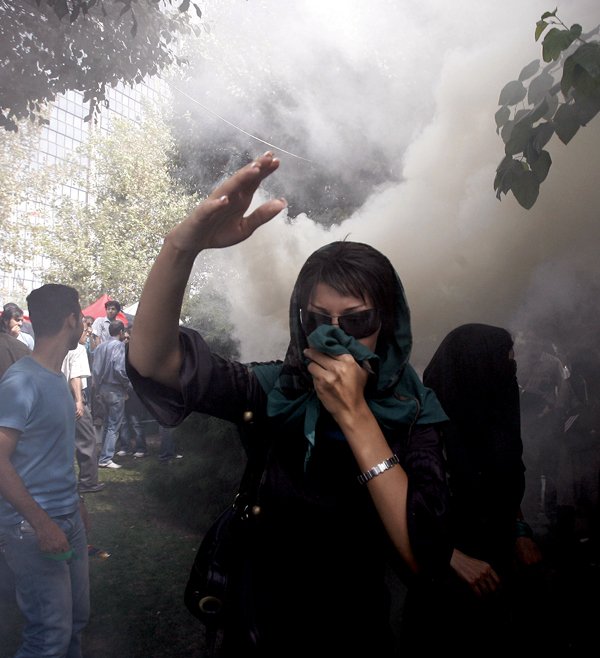TEHRAN, Iran — Iran's supreme leader said Sunday that U.S. officials know they are wrongly accusing Iran of seeking to develop nuclear weapons.
In Iran's first official reaction to the U.S. decision to scrap a European missile-intercept system to defend against threats from Iran, Ay a t o l l a h Ali Khamenei claimed President Barack Obama's administration is following the same policies as its predecessor.
"The U.S. officials who talk about Iranian missiles and their danger while saying Iran intends to build a nuclear bomb, they know these words are wrong," Khamenei said in remarks broadcast on state-run radio. "Despite its apparent friendly messages and words," the Obama administration is pursuing the same policy of Iranphobia, he said.
Khamenei blamed foreign media organizations for "poisoning the atmosphere" and urged his nation to resist the "killer cancer" of an Israel backed by Western powers.
The decision to scrap the missile-defense plan was praised by Russia, which had protested that a defense system in Eastern Europe was a threat to its borders.
Russian President Dmitry Medvedev said in an interview with CNN that Iran needs "positive motivation," not sanctions, to prompt it to cooperate on its nuclear program.
"Before we talk about applying some additional sanctions, we have to use up" all existing options, Medvedev said in a interview that was released Sunday but recorded Tuesday, before the missile plan was scrapped. "We should motivate Iran, but we have to be absolutely confident that we have no other options."
Russia traditionally has opposed U.S. attempts on the U.N. Security Council to increase economic sanctions on Iranover its nuclear program.
Washington is expecting "considerable concessions" from Russia on Iran, including support for sanctions and the cancellation of a plan to sell S-300 missile-defense systems to the country, the Kommersant newspaper reported Friday, citing unidentified officials in the Russian Foreign Ministry.
The Obama administration has invited Iran to start a dialogue on its nuclear program and gave a general September deadline for Tehran to take up the offer. The United States and five other nations accepted an offer from Iran earlier this month to hold "comprehensive, all-encompassing and constructive" talks on a range of security issues, including global nuclear disarmament.
The Obama administration announced earlier this month that it would scrap plans for a missile-defense system based in Poland andthe Czech Republic. Former President George W. Bush argued the system was needed to shoot down an Iranian missile if Tehran ever developed one with adequate range to threaten the United States or Europe.
In a speech marking the end of the Muslim holy month of Ramadan, Khamenei also addressed Iran's domestic political crisis, warning government supporters against accusing opposition members of wrongdoing without proof. It was the Islamic government's latest statement easing its stance on critics of the June presidential election of President Mahmoud Ahmadinejad.
Information for this article was contributed by Nasser Karimi of The Associated Press, by Lyubov Pronina and Calev Ben-David of Bloomberg News, and by Jeffrey Fleishman and Ramin Mostaghim of the Los Angeles Times.
Front Section, Pages 1, 4 on 09/21/2009

